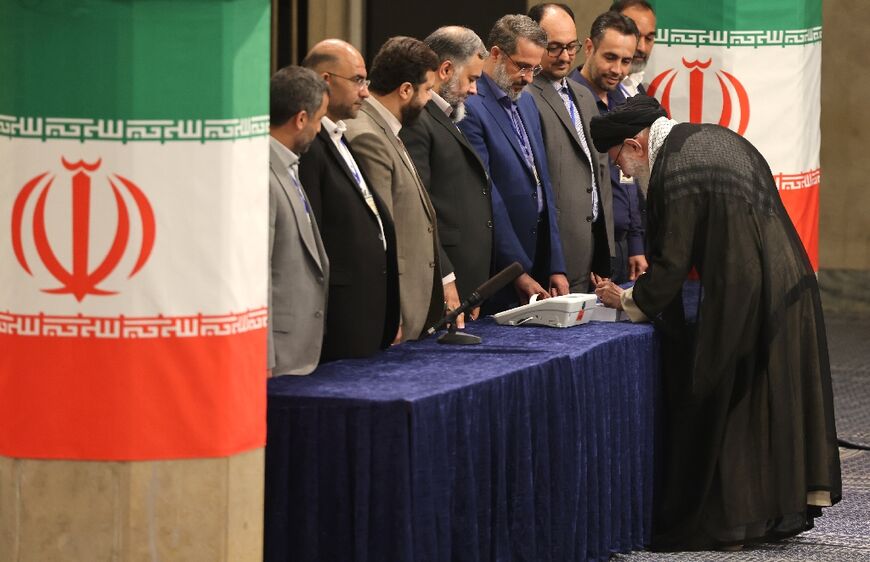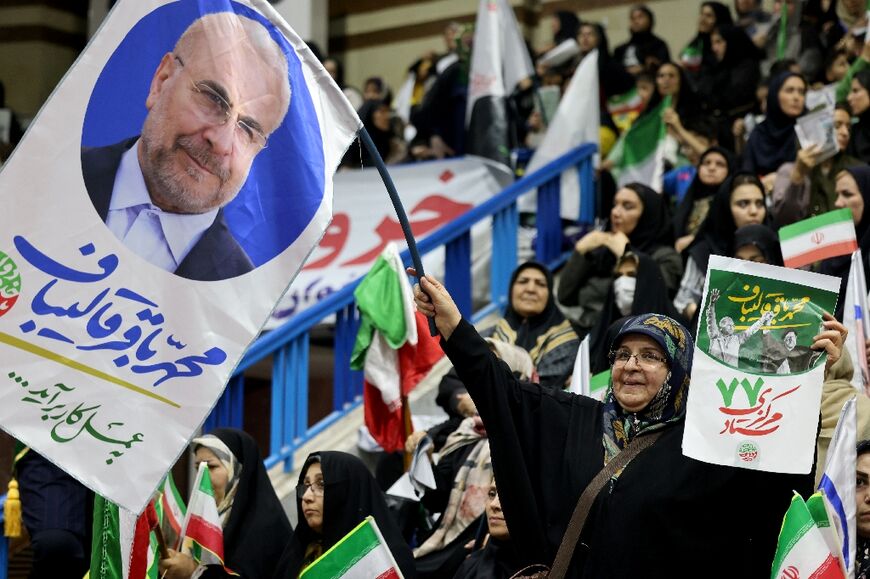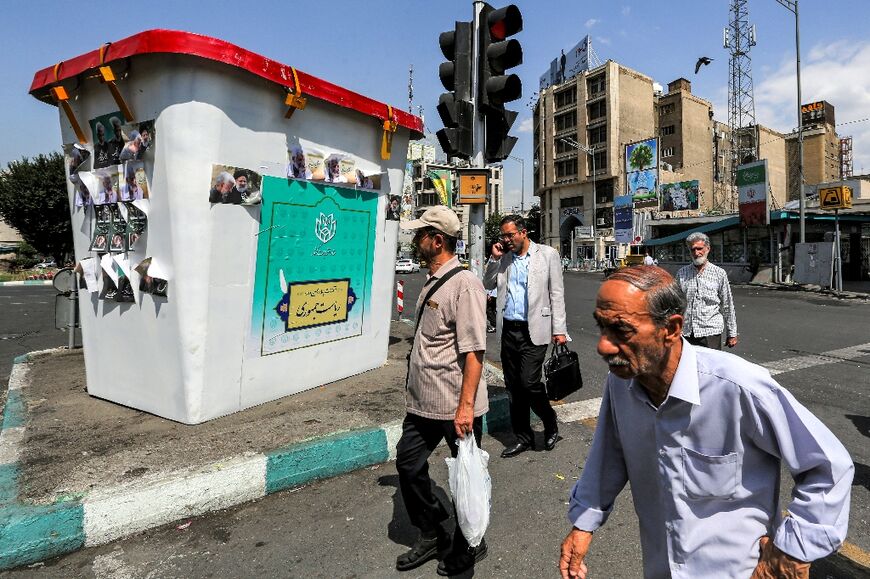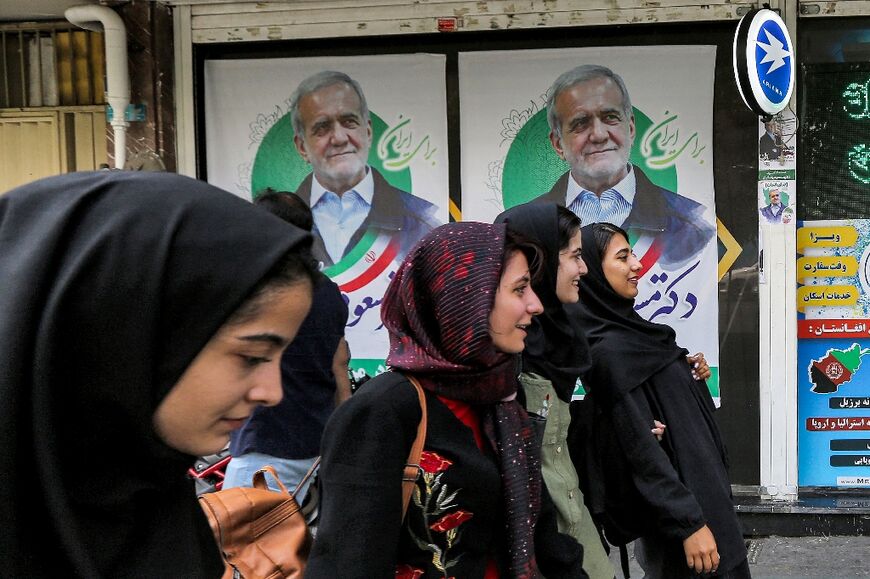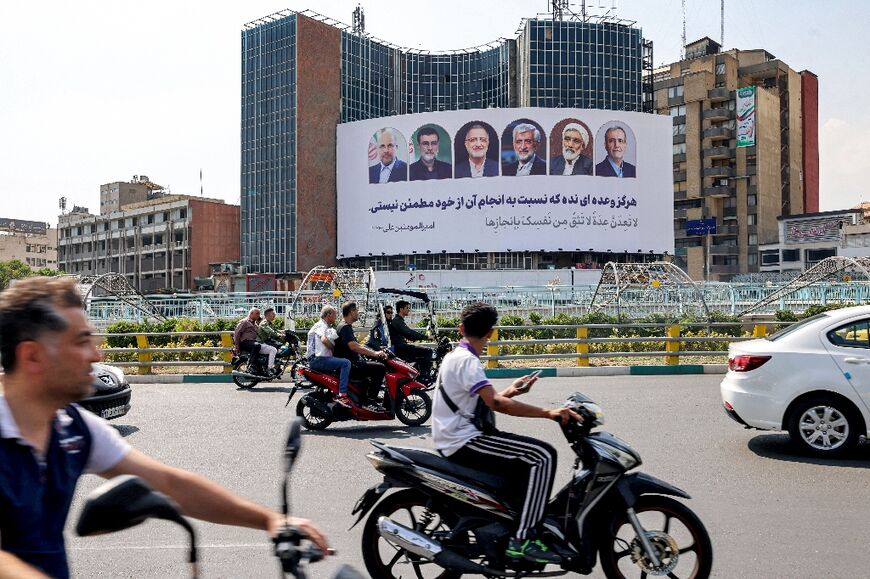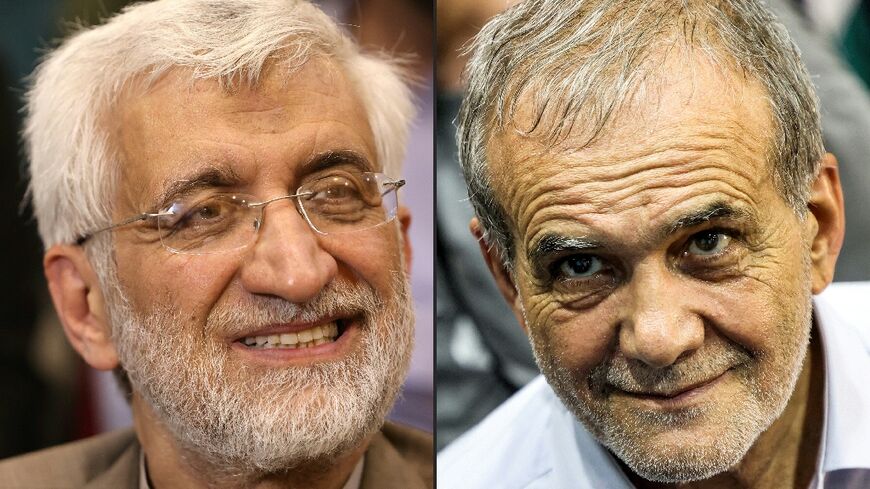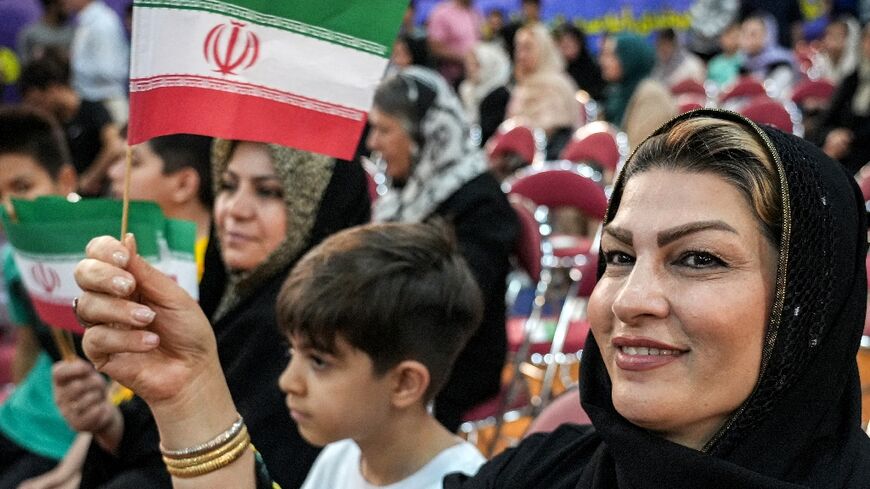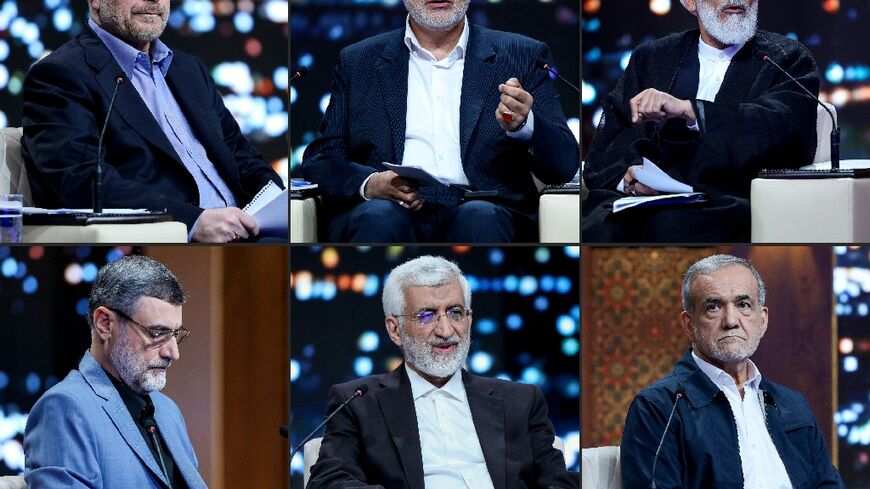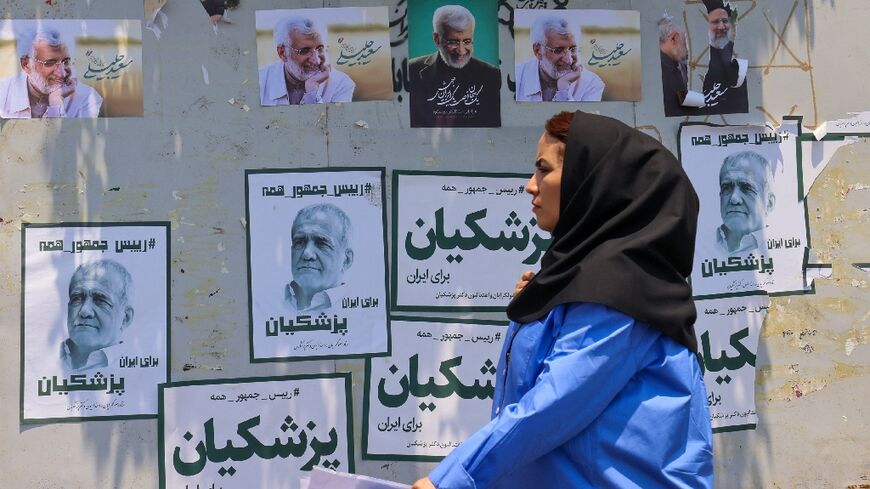Reformist hopes for breakthrough as Iran votes
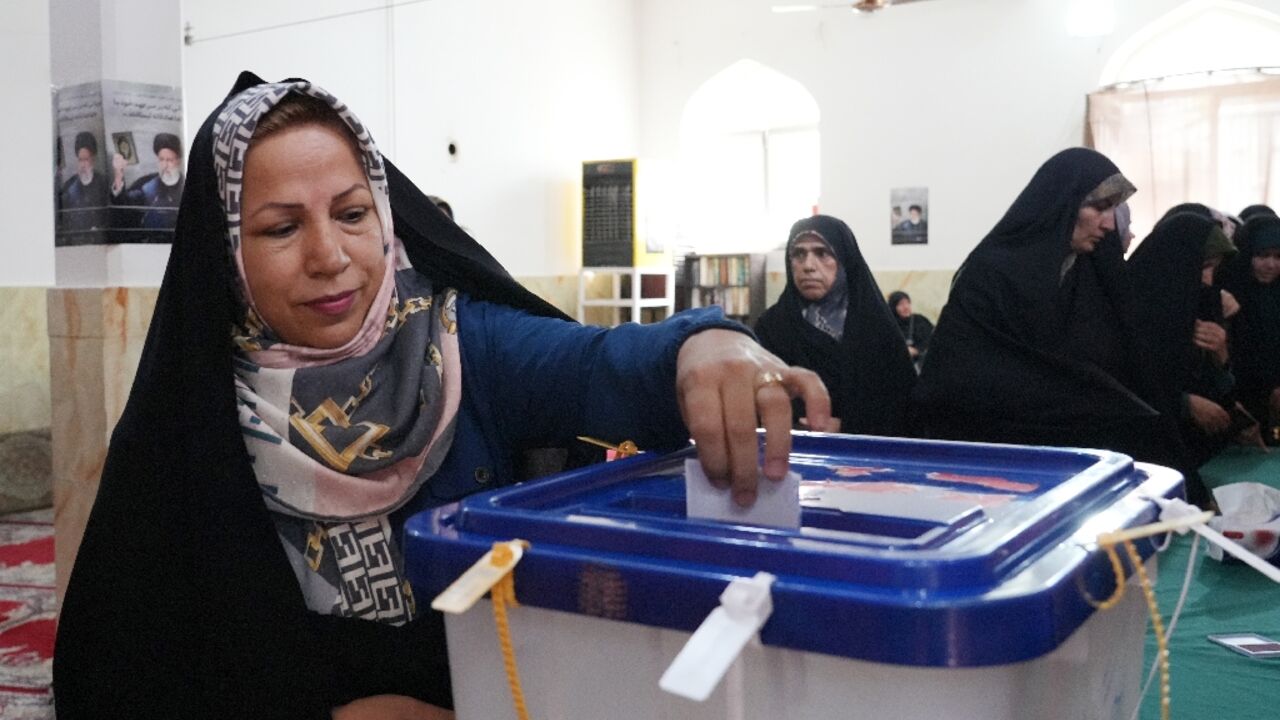
Iranians voted in a presidential election on Friday marked by a lone reformist's bid to break through against a divided conservative field.
Voting was extended three times and eventually ended at midnight (2030 GMT), with around 61 million Iranians eligible to cast ballots after the death of ultraconservative president Ebrahim Raisi in a helicopter crash last month.
The ballot in 58,000 polling stations comes against a backdrop of heightened regional tensions over the Gaza war and discontent over the state of Iran's sanctions-hit economy.
The contenders approved by the Guardian Council, which vets candidates, included conservative parliamentary speaker Mohammad Bagher Ghalibaf and ultraconservative former nuclear negotiator Saeed Jalili.
Also running are the sole reformist, Masoud Pezeshkian, and cleric Mostafa Pourmohammadi.
Two ultraconservatives -- Tehran mayor Alireza Zakani and Raisi's former vice president Amir-Hossein Ghazizadeh-Hashemi -- dropped out on Thursday.
Calling it "a day of joy and happiness", supreme leader Ayatollah Ali Khamenei voted shortly after the polls opened.
"We encourage our dear people to take the issue of voting seriously and participate," said Khamenei, who holds ultimate political power in the Islamic republic.
At the last poll in 2021, turnout was just under 49 percent. Voters opted to stay away after the Guardian Council disqualified many reformists and moderates.
- Cautious hopes -
Ahead of this election, some voters expressed concerns about soaring inflation and the decline of the rial against the dollar.
"We indeed have problems, everything is expensive, but we hope that with the arrival of a new president these problems will be solved," said Ghezelbash, a retired public-sector employee, who gave only his last name.
Another voter in Tehran, Mohammad Reza Hadi, 37, said: "We are taking part in the election to determine the political fate and governance of our country ourselves."
Khamenei said the next president must allow Iran "to move forward without being dependent on foreign countries", although he added that Iran should not "cut its relations with the world".
The candidacy of Pezeshkian, until recently a relative unknown, has revived cautious hopes for Iran's reformist wing after years of dominance by the conservative and ultraconservative camps.
Iran's reformist former president, Mohammad Khatami, praised him as "honest, fair and caring".
Khatami, who served from 1997 to 2005, had also endorsed the moderate Hassan Rouhani, who won the presidency and sealed Iran's nuclear deal in 2015 with Western powers before it was derailed three years later.
The Iranian opposition, particularly in the diaspora, called for a boycott of the vote which they see as not credible.
- Debate over hijab -
During campaign debates, Jalili criticised moderates for signing the 2015 accord which promised Iran sanctions relief in return for curbing its nuclear programme.
Jalili said the deal, which the United States withdrew from in 2018 under President Donald Trump, "did not benefit Iran at all".
Jalili led Iran's nuclear programme negotiations between 2007 and 2013.
Pezeshkian has urged efforts to salvage the agreement and lift crippling sanctions.
"Are we supposed to be eternally hostile to America, or do we aspire to resolve our problems with this country?" he asked.
On the eve of the ballot, the United States announced sanctions against shipping companies based in the United Arab Emirates for transporting Iranian oil, saying it was a response to "escalations" in Iran's nuclear programme.
The contentious issue of the compulsory head covering for women also emerged during the campaign, almost two years since a vast protest movement swept the country after the death in custody of Mahsa Amini, 22.
An Iranian Kurd, Amini had been arrested for an alleged violation of the dress code.
In televised debates, all candidates distanced themselves from sometimes heavy-handed police arrests of women refusing to wear the hijab head covering in public.
Pourmohammadi, the only clerical candidate, said that "under no circumstances should we treat Iranian women with such cruelty".
Early projections of the results are expected by Saturday morning, and official results by Sunday.
If no candidate wins 50 percent of the vote, a second round will be held on July 5, for only the second time in Iranian electoral history after the 2005 vote went to a runoff.
